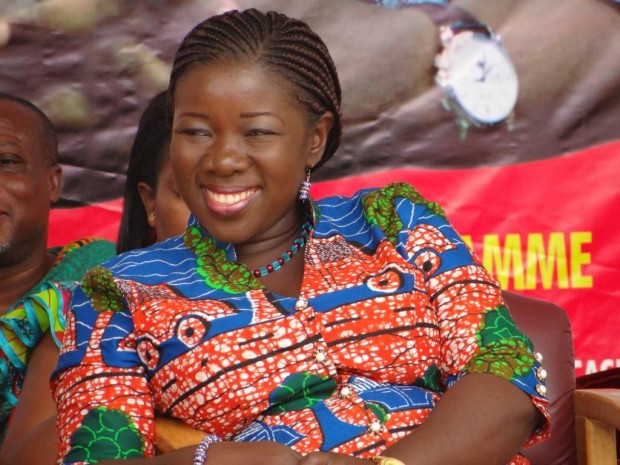
In a proactive response to the recent imposition of a 10% tariff on Ghanaian exports to the United States, the government is rallying key trade stakeholders to formulate strategies aimed at cushioning the impact on domestic industries.
The announcement follows a three-month suspension of the tariffs by former US President Donald Trump on April 9. The temporary reprieve is seen as an opportunity for Ghana to strategize and mitigate the effects of the new trade measures.
“The 90-day pause gives us breathing room to assess the broader implications of these tariffs and implement countermeasures to safeguard our economy,” said Mrs. Elizabeth Ofosu-Adjare, Minister of Trade, Agribusiness, and Industry, during a stakeholder meeting in Accra on Thursday.
She emphasized the government’s commitment to addressing the trade challenges head-on, stating, “Our discussions today aim to identify immediate, actionable steps to protect our industries while strengthening our trade position.”
Initiatives to Bolster Trade Resilience
Mrs. Ofosu-Adjare outlined several initiatives under consideration, including the Accelerated Export Development Programme, Rapid Industrialisation for Jobs, and the 24-Hour Economy Policy. These initiatives are designed to enhance production capacity, improve export market access, and build resilience within Ghana’s trade and industrial sectors.
The government is also prioritizing trade diplomacy efforts to maintain Ghana’s preferential access to international markets. “We are committed to preserving our competitive edge by promoting investments and fostering partnerships that will benefit our export sector,” she added.
Leveraging Regional Opportunities
Highlighting the importance of the African Continental Free Trade Area (AfCFTA), Mrs. Ofosu-Adjare urged stakeholders to seize the opportunities presented by the regional trade platform. She revealed plans to raise the tariff issue during the upcoming African Trade Ministers’ meeting, with the aim of securing collective support and enhancing trade-related infrastructure across the continent.
“Our focus is on building a robust ecosystem that reduces reliance on single markets while incentivizing export-oriented investments,” she noted.
Implications of the Tariffs
The new tariff threatens to affect Ghanaian exports such as cocoa, gold, and textiles, which could face reduced demand due to higher prices in the US market. President Trump justified the measure as a response to what he described as “trade imbalances,” pointing to Ghana’s trade surplus with the US.
In 2024, Ghana exported goods worth GH₵294.9 billion while importing GH₵250.2 billion, resulting in a GH₵44.7 billion trade surplus, according to the Ghana Statistical Service. Similarly, data from the International Trade Centre revealed that US imports from Ghana totaled $1.21 billion, compared to $967 million in US exports to Ghana, creating a $244 million surplus in Ghana’s favor.
A Call for Collective Action
Mrs. Ofosu-Adjare appealed to stakeholders to collaborate in addressing the trade challenges, underscoring the need for collective solutions. “This is a defining moment for us to come together, harness regional opportunities, and safeguard our industries from external shocks,” she concluded.
The government’s swift response reflects its resolve to protect Ghana’s economic interests and its export-driven sectors from the looming challenges posed by the US tariffs.
Story by: Mercy Addai Turkson #ahotoronline.com



